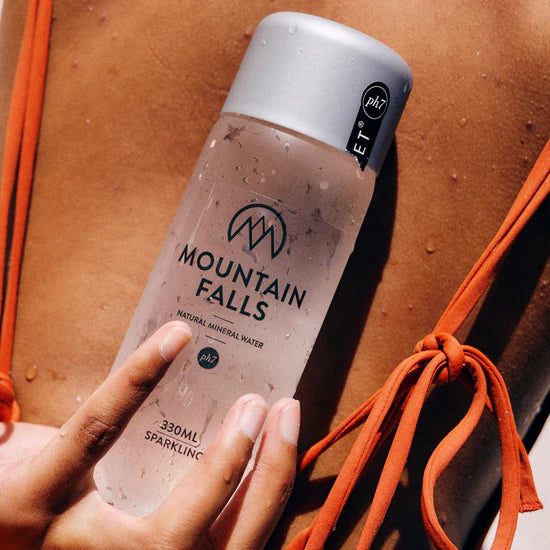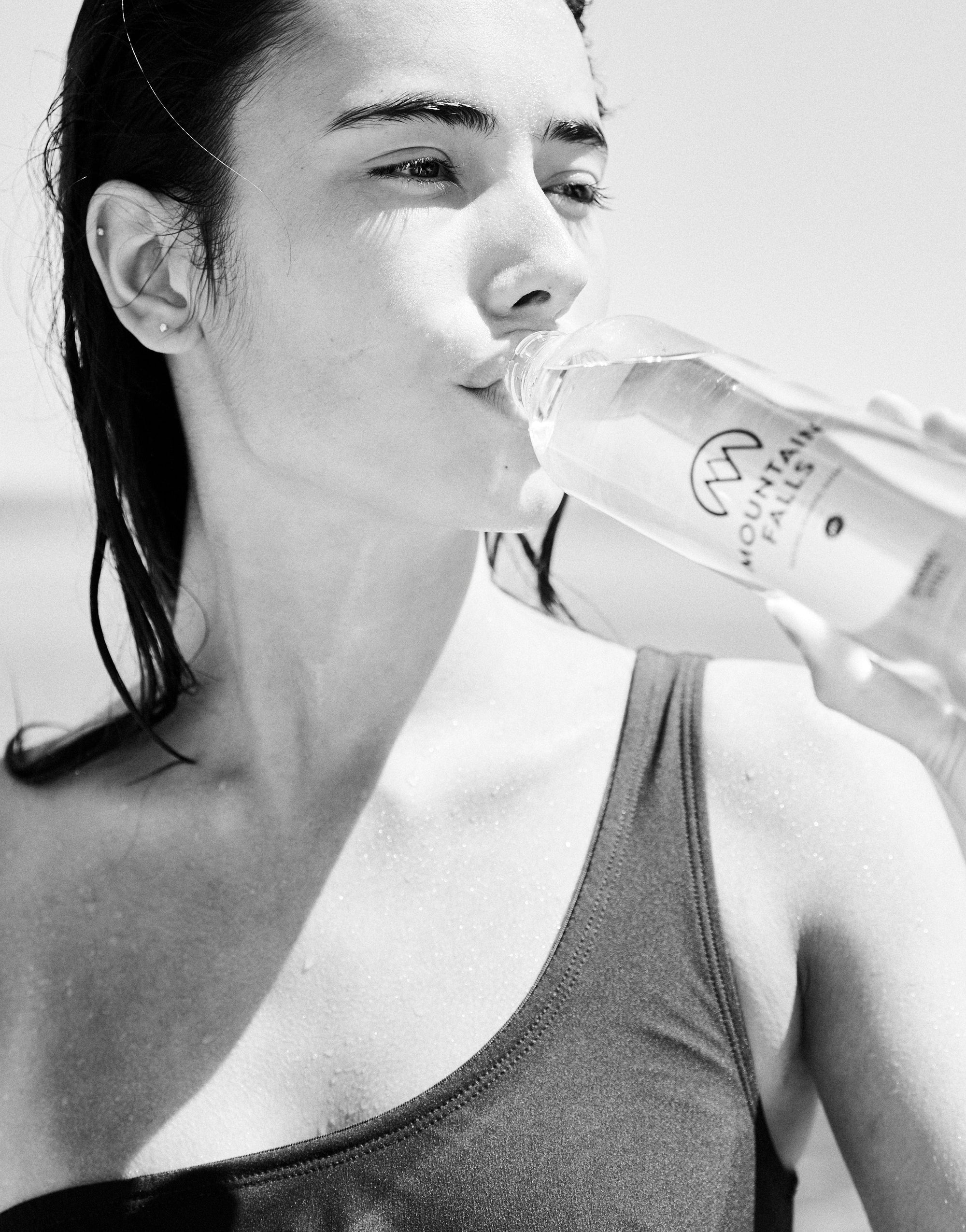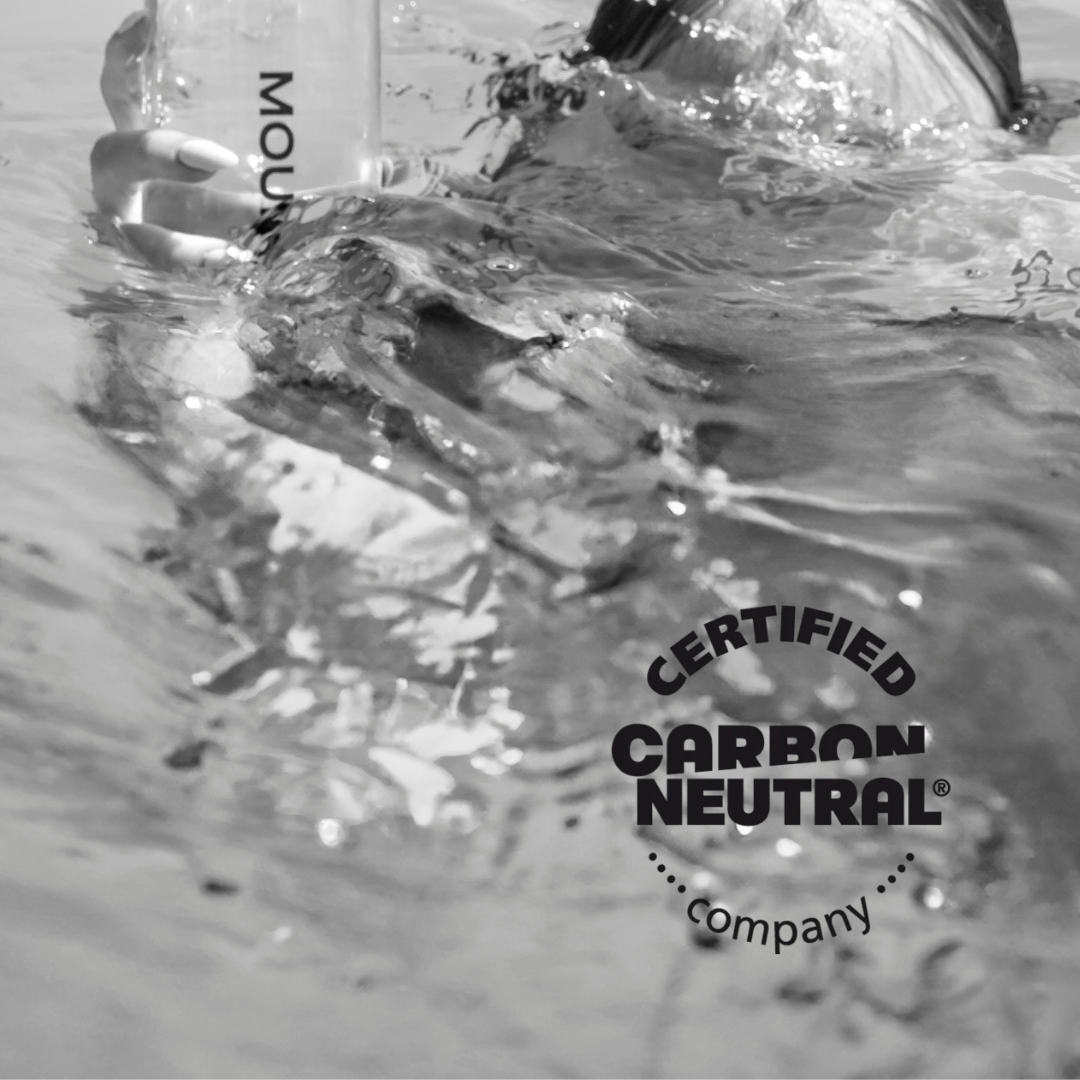In South Africa, where the beauty of our landscapes is matched only by the severity of our water challenges, saving water isn't just a good habit—it's essential for our survival. The average person uses around 140 litres of water a day, but with water deficits looming by the 2080s, it's clear we need to start cutting down.
Conserving water is more than just turning off the tap while brushing your teeth. It's about a collective effort to use water wisely and avoid unnecessary wastage. Whether it's through installing water-efficient fixtures or rethinking our daily water use, every drop saved contributes to a more sustainable and water-secure future for all. Let's dive into simple yet impactful ways you can save water in your home, ensuring we all do our part for the environment and future generations.
Key Takeaways
-
Understand Water Consumption's Environmental Impact: Every litre of water saved helps protect South Africa's delicate ecosystems, which are crucial for the country's biodiversity and water cycle regeneration.
-
Adopt Practical Water-Saving Measures: Implement simple yet effective habits such as using water-efficient appliances, collecting rainwater, checking for leaks, and choosing gardening methods that minimise water usage to significantly reduce your water footprint.
-
Sustainable Hydration Choices: Opt for local, sustainable water brands like Mountain Falls, use reusable bottles, and consider home water filtration systems to ensure eco-friendly hydration practices that contribute to conservation efforts.
-
Businesses Have a Crucial Role in Water Conservation: Companies should adopt innovative water-saving technologies, align with eco-friendly brands, and integrate water-efficient practices into their operations to play a part in South Africa's water sustainability.
-
Every Action Counts: Whether through individual efforts at home or collective actions in the business sector, each step towards more sustainable water usage contributes to preserving South Africa's precious water resources for future generations.
The Impact of Water Consumption on the Environment
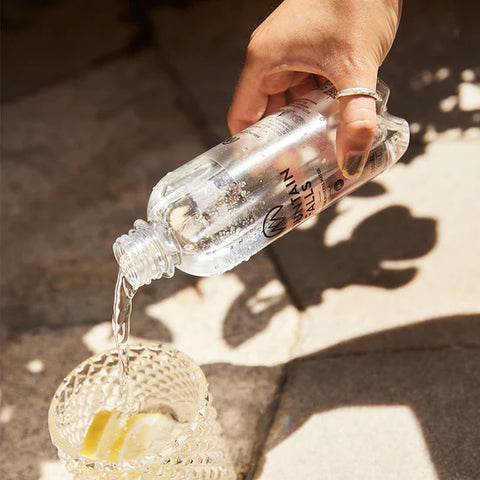
Understanding how your water consumption habits affect the environment is key to making meaningful changes. In South Africa, where water scarcity is a significant issue, every litre of water saved can make a difference. Reducing water usage isn't just about conserving a precious resource; it's also about protecting our natural ecosystems.
Rivers, lakes, and underground aquifers are all sources of the water you use daily, from Mountain Falls to the taps in your home. These water bodies are not infinite and are drastically impacted by overconsumption and pollution. The balance of ecosystems, which rely on these water sources, gets disturbed, affecting biodiversity and the natural regeneration of water cycles.
When thinking about eco-friendly water solutions, consider the impact of using less water at home. The best water in South Africa comes from well-managed and sustainable sources. By choosing still water or sparkling water that is responsibly sourced, you contribute to the conservation of these precious ecosystems. Besides, investing in water-efficient appliances can significantly lower your household’s water consumption. An efficient washing machine, for instance, can save as much as 26,000 litres per household per year.
|
Water-Saving Tips |
Estimated Annual Savings (Litres) |
|---|---|
|
Efficient washing machine |
26,000 |
|
Washing full loads only |
Varies |
Remember, when you conserve water, you're not just saving on your monthly utility bill. You're contributing to the preservation of South Africa's unique landscapes and the natural habitats of countless species. Choosing best-tasting water in Cape town that emphasises eco-friendly practices or simply reducing your laundry frequency can have a far-reaching impact.
Water conservation efforts, both small and large-scale, help maintain the ecological balance and ensure that future generations can enjoy and benefit from South Africa's natural beauty and resources. By taking steps towards more sustainable water practices, you're playing a part in a much larger, global effort to combat environmental degradation.
Mountain Falls' Approach to Sustainability

In the heart of South Africa's water crisis, Mountain Falls stands out not just for offering some of the best water in South Africa but also for its unwavering commitment to sustainability. With each drop of their still water and sparkling water, you're tasting the essence of eco-friendly practices that are critical in a region where every litre counts.
Mountain Falls recognises the importance of preserving South Africa's natural beauty and resources. As such, their operations are designed to tread lightly on the land, ensuring that their extraction and bottling processes have minimal environmental impact. It's a holistic approach that encompasses the conservation of precious water sources and the protection of surrounding biodiversity.
Their mineral water, renowned for being the best-tasting water in Cape Town, undergoes a meticulous filtration process that not only ensures its purity but also respects the natural balance of the area's ecosystems. By prioritising the environment in every step of their process, Mountain Falls delivers premium quality water that's not only good for you but also kind to the planet.
Moreover, Mountain Falls' dedication to sustainability goes beyond their product. They advocate for responsible water consumption and provide support to initiatives aimed at water conservation in South Africa. Through community outreach and education, they play an active role in fostering a culture of sustainability.
Embracing eco-friendly water practices, Mountain Falls sets a commendable example for businesses and individuals alike. Their approach demonstrates that it's possible to enjoy the finest natural resources while actively contributing to their preservation. By choosing Mountain Falls, you're not just quenching your thirst with sparkling or still water; you're becoming part of a larger movement towards a more sustainable and water-wise South Africa.
Practical Tips for Saving Water Daily
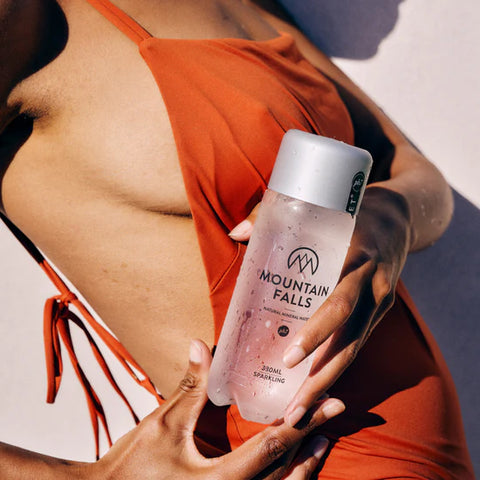
Saving water is a crucial responsibility, especially in South Africa, where water scarcity is a growing concern. By adopting simple, everyday habits, you can significantly reduce your water footprint and contribute to a more sustainable future. Below are practical tips to help you save water daily.
Minimise Laundry Loads
One of the most effective ways to cut down on water usage is to do less laundry. Wait until you have a full load before running your washing machine. This simple change can save hundreds of litres of water each month. Additionally, consider investing in water-efficient washing machines that use less water and energy.
Rainwater Harvesting
Installing a water butt to collect rainwater is both an eco-friendly and cost-effective method to water your garden. Typically, a water butt can store about 200 litres of water, providing you with a plentiful supply of untreated water that's perfect for your plants. Using rainwater not only conserves valuable mineral water but also reduces your reliance on treated water, an important aspect towards maintaining the ecological balance.
Check for Leaks
Regularly inspect your home for any leaks in your internal plumbing system. A dripping tap can waste a significant amount of water over time, amounting to an unnecessary increase in your water bill. By fixing leaks promptly, you're not just saving water but also protecting your home from potential water damage.
Use Water Cans for Gardening
Instead of using a hosepipe, opt for a watering can when tending to your garden. Hosepipes and garden sprinklers are notoriously inefficient, using between 500 and 1000 litres of water per hour. Water cans allow you to control the amount of water you use, focusing on the root areas of plants where it's needed most.
Install a Water Meter
Consider installing a water meter to keep track of your water usage. Water meters encourage more mindful consumption by making you aware of how much water you're actually using. Often, households with water meters tend to use less water, as they're directly incentivised to conserve water to save on utility bills.
By implementing these tips, you'll not only contribute to saving this precious resource but also enjoy the satisfaction of adopting a more sustainable lifestyle. Remember, every drop counts, and your efforts play a vital role in preserving South Africa's water resources for future generations.
Sustainable Hydration Practices
In your pursuit of eco-friendly water choices, consider how you hydrate throughout the day. Embracing sustainable hydration practices not only supports water conservation efforts but also ensures that you're consuming some of the best water South Africa has to offer.
Mountain Falls represents an excellent choice for those looking for still water and mineral water with sustainability in mind. By choosing local brands that focus on sustainable extraction and packaging, you're reducing the environmental impact often associated with bottled water. It's essential to look for products that use recyclable materials or, better yet, offer a return-and-refill scheme to minimise waste.
When at home or work, opt for a reusable water bottle. This simple swap can significantly reduce your reliance on single-use plastics and inspires a more sustainable lifestyle. For those who enjoy sparkling water, investing in a home carbonation system could not only quench your thirst but also cut down on the amount of plastic bottles purchased.
Consider installing a water filtration system if you're wary of tap water quality. This allows you to enjoy the best tasting water Cape Town has to offer, right from your tap, knowing it's free from impurities and has a lower carbon footprint compared to bottled options.
When watering your garden, use collected rainwater or re-use water where possible. Think about implementing a grey water system that recycles water from your shower, sinks, and washing machine for garden use. Not only does this save significant volumes of water but it reiterates your commitment to preserving South Africa's precious water resources.
Remember, every step towards eco-friendly water usage counts in contributing to a more sustainable future.
The Role of Businesses in Water Conservation
In South Africa, with its rich natural landscapes and diverse ecosystems, water conservation is not just an option; it's a necessity. As you're seeking ways to contribute to a sustainable future, remember that businesses play a pivotal role in water conservation efforts. Companies, both large and small, can lead by example and demonstrate that economic activities need not come at the expense of the environment.
Innovation is key in this journey. Embracing technologies such as sensor-based irrigation and smart water meters can drastically reduce water wastage. These systems ensure water is only used when absolutely necessary and provide valuable data to further optimise usage. Imagine the difference it could make if every business in South Africa adopted just one of these technologies.
Furthermore, aligning with brands that prioritise sustainability is another way businesses can make an impact. Choosing local brands like Mountain Falls for still and mineral water needs not only supports the South African economy but also promotes eco-friendly practices. By opting for products that boast eco-friendly packaging and sustainable extraction methods, businesses can contribute to the preservation of South Africa's water resources while offering the best water in South Africa to their clients and employees.
Water-saving practices should become a staple in every company's operating manual. Simple actions, such as installing water-efficient fixtures and encouraging the use of reusable water bottles, can collectively lead to significant reductions in water consumption. Moreover, measures like using grey water for gardening or installing a water meter enable businesses to monitor and reduce their environmental impact, proving that every action, no matter how small, counts towards a larger goal.
In sum, South African businesses have a unique opportunity to champion water conservation. By integrating innovative water-saving technologies and aligning with sustainable brands, they not only contribute to the well-being of the environment but also set a precedent for responsible water usage that others are sure to follow.
Embracing water conservation is not just a choice but a necessity for businesses in South Africa. By adopting innovative technologies and aligning with sustainable brands you're not only cutting down on water wastage but also setting a benchmark for eco-friendly practices. Remember every drop saved contributes to a sustainable future. Let's lead by example and make responsible water usage a core part of our business ethos. Together we can make a significant impact on preserving our precious water resources for generations to come.
Frequently Asked Questions
Why is it important for businesses to engage in water conservation in South Africa?
Engaging in water conservation is vital for businesses in South Africa due to the country’s limited freshwater resources. By adopting sustainable practices, businesses can help mitigate water scarcity, reduce their environmental impact, and lead by example in promoting responsible water usage.
What innovative technologies can businesses adopt for water conservation?
Businesses can adopt technologies such as sensor-based irrigation systems and smart water meters. These technologies help in efficiently managing water use by monitoring and adjusting water usage in real-time, reducing wastage significantly.
Why should businesses consider aligning with sustainable brands for their water needs?
Aligning with sustainable brands like Mountain Falls ensures that businesses contribute to water conservation efforts. Sustainable brands often use eco-friendly practices in sourcing and supplying water, which helps in preserving natural water resources and promoting environmental sustainability.
How can using greywater contribute to water conservation in businesses?
Using greywater for purposes like gardening instead of fresh water can significantly save water. It repurposes water from sinks, showers, and laundry, reducing the demand on freshwater supplies and promoting a more sustainable and efficient use of water within businesses.
What impact do water-efficient fixtures have on water conservation?
Installing water-efficient fixtures such as low-flow toilets and faucets reduces water consumption in businesses. These fixtures are designed to use less water for the same purposes as traditional fixtures, helping in conserving a considerable amount of water over time.
How does the adoption of water-saving practices by businesses influence water conservation efforts in South Africa?
Adoption of water-saving practices by businesses not only reduces their own water footprint but also sets a positive example for others to follow. It contributes to a wider culture of conservation, influencing other businesses and individuals to adopt similar practices, thus amplifying the impact on water conservation efforts across South Africa.

